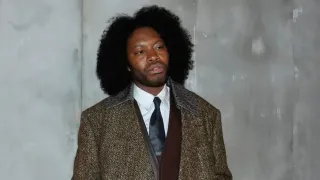June 27, 2017
Pepe Lives: Cartoonist Resurrecting Frog Hijacked by Trolls
Michael Kunzelman READ TIME: 2 MIN.
Pepe the Frog is coming back from the dead.
Los Angeles-based cartoonist Matt Furie told The Associated Press on Monday that he intends to resurrect the character he killed off last month in what appeared to be a rebuke to racist, anti-Semitic internet trolls who hijacked his creation, transforming it into a hate symbol.
Furie and his brother, Jason, launched a crowdfunding campaign to raise $10,000 for a new comic book featuring Pepe. He also has an attorney, Kimberly Motley, exploring possible litigation against those profiting off Pepe's image without Furie's permission.
A cartoon released in May showed Pepe in an open casket. Furie said he created that cartoon as "art therapy" shortly after November's presidential election and nearly forgot about it.
Furie said he was surprised by the wave of publicity generated by Pepe's "death."
"It was supposed to just be a joke," he said.
The "Save Pepe" campaign that Furie launched Monday on Kickstarter says its aim is "reclaiming his status as a universal symbol for peace, love, and acceptance." If the campaign meets its goal, Furie said he would see that as "proof that Pepe is still a positive thing."
Furie's "chill frog-dude" debuted in a 2006 comic book called "Boy's Club." Pepe's likeness became a popular canvas for benevolent internet memes.
But the user-generated mutations became increasingly hateful and ubiquitous more than a year before the 2016 presidential election. Furie was horrified to see his creation become a mascot for the "alt-right" fringe movement, a loosely connected mix of white nationalists, neo-Nazis and other right-wing extremists.
"It all just happened so fast," he said. "Make no mistake: They're basically the new (Ku Klux Klan)."
The Anti-Defamation League branded Pepe as a hate symbol in September 2016 and promoted Furie's efforts to reclaim the character.
Furie said his plans for Pepe's resurrection - in the first "Boy's Club" comic book since 2010 - are top secret.
"Once we get the money together, we're going to do it from scratch," he said.
In the meantime, Furie said he's also trying to "gain some entrepreneurial control" over Pepe with his attorney's help.
"It's a very American tale, trying to control that which cannot be controlled," he said.
Motley, Furie's Milwaukee-based lawyer, said all of the characters in his comic book are copyright-protected. She said she is still in "research mode" and hasn't sued anyone yet for using Pepe's image without permission to sell merchandise such as T-shirts, posters and hats.
"This isn't about crushing people's rights to free speech," she said. "This is about taking Pepe back to where he belongs as a positive image."






